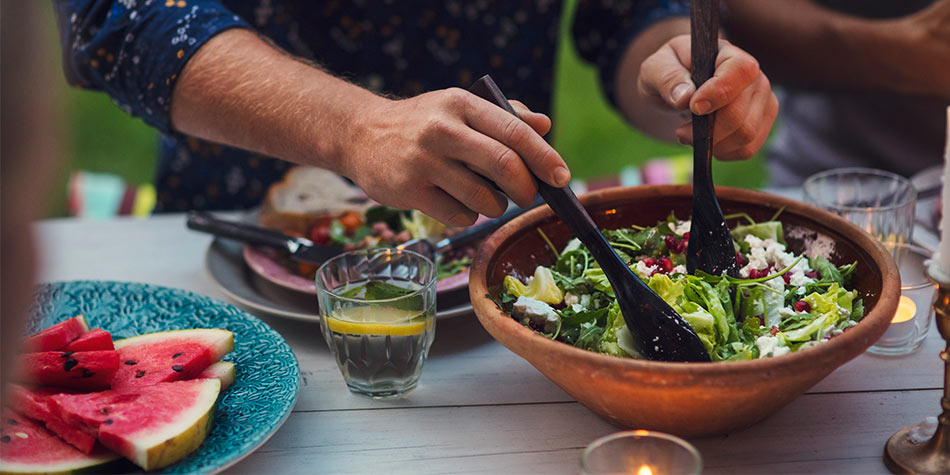
The past months have brought uncertainty and many challenges into our lives, including feeding our families and ourselves. However, there are still some things we can do to prioritize healthy food options. But why would we want to do this during this stressful time? Because research suggests that fueling our bodies with nutrient-dense foods can help us maintain our energy level up throughout the day, and most importantly because a healthy-balanced diet can support our immune system and mental health.
Here are some tips that may be helpful during this time.
- Focus on nutrient content - Think getting the most amount of nutrients out of your food!
- Choose foods with longer shelf-life - Buy frozen fruits and vegetables, which are just as nutritious as fresh but last much longer.
- Freeze fresh fruit and vegetables before they spoil for later use in smoothies or soups.
- Keep healthy snacks on hand, and keep it simple! See below for a list of suggestion including kid-friendly snack ideas.
- Stock up on lean protein such as chicken, lean ground beef or turkey, eggs, and all types of beans.
- Stock up on staple foods which can be used in many ways - brown rice, whole wheat pasta, dried beans.
- Freeze foods in small portion sizes. Consider using ice cube trays for soups, stews, or chili. This may be particularly helpful when thawing foods for children and minimizing food waste.
- If purchasing large quantities of meat, separate in individual or small servings before freezing.
To avoid too much stress/emotional eating during this time:
- Stick to a meal/snack schedule that works for you. This may look as simple as 2-3 main meals a day with 2-3 small well balanced snacks in between meals (see below list for some ideas).
- Eating small, frequent, and balanced meals throughout the day can keep us from becoming overly hungry before the next meal. It allows us to be more mindful while we eat, which means we are more likely to slow down while eating, chew our foods more before swallowing, and savor every bite of food.
- Try pausing for a few minutes after each meal/snack to think about your fullness/satiety.
We cannot forget about mental health during this isolating time, and physical activity plays a main role in this area. Try setting small physical activity goals that work for you and/or your family. It can be as simple as a 20 - 30 minute walk daily, or playing some music/dancing, keeping your heart rate up for this period of time, or even practicing a sport that you enjoy with your family.
Snack ideas
When it comes to snacking, I always advise patients to focus on getting in at least protein (such as nuts or nut butters or lean meats), paired with fiber in the form of fruits, vegetables, or whole grains, and if we can add a healthy fat to the mix even better!
- 1 Tbsp. nut butter of choice (peanut butter, almond, or cashew butter) + 1 serving of fruit (1 apple, pear, peach, or 1 c. whole strawberries, or 2 small mandarin oranges)
- 1 handful of nuts (all types) + 1 serving of fruit (as listed above)
- 1 string cheese + 100% whole grain crackers
- Roasted chickpeas + 1 serving of fruit or vegetables
- Sweet Bell Peppers (or cherry tomatoes or cucumber slices or carrots) + Hummus
- Plain Greek yogurt sweetened with Splenda or Monkfruit Sweetener, or sweetened with a handful of berries for added fiber
- 1 hardboiled egg + 1 serving of fruit (as listed above)
- 2 slices of low sodium turkey deli meat + 1 serving of fruit or vegetables
- 1 cheese roll up (string cheese rolled with low sodium/lean deli meat) + cherry tomatoes or other vegetables
- Hummus + 100% whole grain crackers
- 1 piece of 100% whole grain toast + ¼ mashed avocado + salt and pepper to taste
If you feel you need more nutrition support during this time, don't hesitate to reach out to your provider or a Registered Dietitian.